The three speakers represent two of the dialects, with the most common one - the middle dialect spoken in Riga and central parts of Latvia - not featured in the film. In intimate surroundings, a farmer, a schoolteacher, and a herder of ostriches talk about perceived differences between Latvian speakers, and about language policy and their lives.
Related Movies

Short Day (2014)
An ordinary old folks’ home on the Latvian border – one of many, where our parents, grand-parents and other relatives spend their old age. Theirs is the generation whose prime years co-existed with the Soviet Union, and who were promised: work, give all you can, and we’ll take care when you’re old. The system changed and the reality is different. How to live in this reality, accept the current rules, or live in the past and have regrets. We will touch upon their world, and the dreams and hopes of Vilnis, Imants, Alberts and Elizabete.
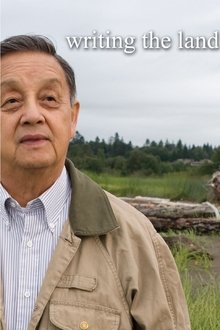
Writing the Land (2007)
In this short documentary, a Musqueam elder rediscovers his Native language and traditions in the city of Vancouver, in the vicinity of which the Musqueam people have lived for thousands of years. Writing the Land captures the ever-changing nature of a modern city - the glass and steel towers cut against the sky, grass, trees and a sudden flash of birds in flight and the enduring power of language to shape perception and create memory.

Trillium (2018)
There are about 250 people with a unique ancestry. Livonians – one of the smallest and most endangered nations. Each of Livonians has a duty to preserve their identity and the great history of their ancestors. Trillium follows the footsteps of a poet and researcher Valts Ernštreits, who is one of 20 people able to speak fluent Livonian – an indigenous language related to Estonian and Finnish – in his efforts to look after the language and culture of these ancient settlers of the Baltic Sea coast.
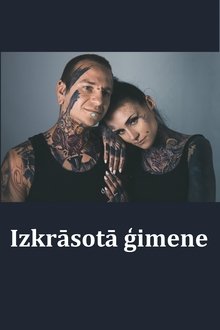
The Inked Family (2017)
“The Inked Family” follows a couple of married Latvian-born tattoo artists – Anrijs and Monami Frost of online fame. They’re now living in Liverpool with their daughter, and their previous lives in Latvia seem almost surreal to them. The film traces Monami’s past, and the couple’s current lives and the success they’ve found as tattoo artists.

The Last Day of School (2014)
After receiving an edict from the municipal authorities about the closing of their school, the students at Mežvidi primary school continue to attend lessons and exercise creativity and fun, but it’s all clouded in a sense of fatality. They aren’t many students, and because of that the school resembles a large family rather than an institution. Near the Russian border, deep in the Latgale region, this place will become a nowhere-land once the youth depart. In an intimate message about a national problem, the story focuses on three sisters for whom life is about to drastically change. Through their daily lives and small adventures we try to understand the real meaning of the contention that “the countryside is dying”. And we see hope.

To Be Beautiful (2019)
The documentary explores issues of beauty and acceptance in a culture increasingly saturated with idealised and unattainable ideals of femininity. It is a story about the world of young girls in today's Latvia, based on conversations about girls' attitudes towards the world and their place in it.
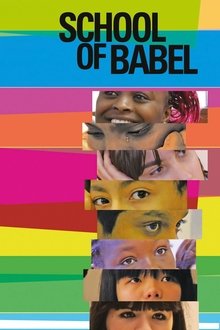
School of Babel (2014)
They just arrived in France. They are Irish, Serbs, Brazilians Tunisians, Chinese and Senegalese ... For a year, Julie Bertuccelli filmed talks, conflicts and joys of this group of students aged 11 to 15 years, together in the same class to learn French.
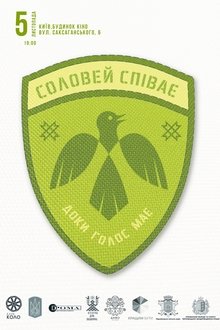
The Nightingale Sings (2019)
The movie explores the origin of the Ukrainian language and persecution of those who defended its authenticity. Using examples of other countries, creators of the film prove that a nation cannot exist without a language.

Lon Marum (2012)
A TV-hour length documentary film depicting the relationship between language, culture, place, music, tradition, and magic on an active volcano, in the Pacific nation of Vanuatu, on the island of Ambrym.

The Brave Class (2017)
Three college students start a social experiment to prove that reality changes according to the words we use to describe it. Through research, activist actions, and artistic interventions, they analyze the importance of language in the way we understand the world. The documentary includes analysis from more than 20 international experts and leaders in the fields of political communication and information.

Keep Talking (2017)
Three Alaska Native women work to save their endangered language, Kodiak Alutiiq, and ensure the future of their culture while confronting their personal demons. With just 41 fluent Native speakers remaining, mostly Elders, some estimate their language could die out within ten years. The small community travels to a remote Island, where a language immersion experiment unfolds with the remaining fluent Elders. Young camper Sadie, an at-risk 13 year old learner and budding Alutiiq dancer, is inspired and gains strength through her work with the teachers. Yet PTSD and politics loom large as the elders, teachers, and students try to continue the difficult task of language revitalization over the next five years.

Colours of the Alphabet (2016)
It is estimated that 40% of the world’s population lack the opportunity to be educated in their own language. In Colours of the Alphabet we get an insight into the challenges this poses as we follow a group of first graders in Zambia – a country with 72 local languages where education is primarily offered in English.

Those Who Come, Will Hear (2018)
“Those Who Come, Will Hear” proposes a unique meeting with the speakers of several indigenous and inuit languages of Quebec – all threatened with extinction. The film starts with the discovery of these unsung tongues through listening to the daily life of those who still speak them today. Buttressed by an exploration and creation of archives, the film allows us to better understand the musicality of these languages and reveals the cultural and human importance of these venerable oral traditions by nourishing a collective reflection on the consequences of their disappearance.
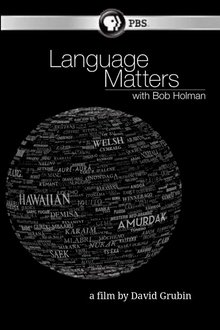
Language Matters with Bob Holman (2015)
There are over 6,000 languages in the world. We lose one every two weeks. Hundreds will be lost within the next generation. By the end of this century, half of the world's languages will have vanished. Language Matters with Bob Holman is a two hour documentary that asks: What do we lose when a language dies? What does it take to save a language?

Se ti Sabir (2019)
"Se ti sabir" is a film reflecting on language, intelligence, and our relationship with new technologies and non-human species.
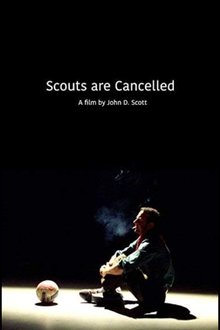
Scouts Are Cancelled (2007)
Director John Scott crafts this look at the curious life of his longtime friend John Stiles — an aspiring writer and former telephone marketer whose midlife meltdown worked wonders for his career. Stiles was down on his luck working as a telemarketer in Toronto when, one day, he threw out his pre-written script and began speaking to customers in curious character voices inspired by his upbringing in Nova Scotia. That month, Stiles made the most sales of any employee and earned a free DVD player for his efforts. In the following years, Stiles threw caution to the wind, venturing out to local open mic nights — where he developed a substantial cult following — and later publishing a pair of books with Insomniac press.
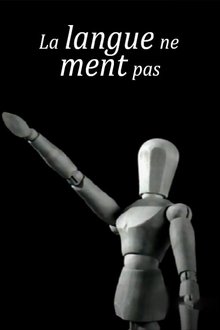
Language Does Not Lie (2004)
Victor Klemperer (1881-1960), a professor of literature in Dresden, was Jewish; through the efforts of his wife, he survived the war. From 1933 when Hitler came to power to the war's end, he kept a journal paying attention to the Nazis' use of words. This film takes the end of 1945 as its vantage point, with a narrator looking back as if Klemperer reads from his journal. He examines the use of simple words like "folk," "eternal," and "to live." Interspersed are personal photographs, newsreel footage of Reich leaders and of life in Germany then, and a few other narrative devices. Although he's dispassionate, Klemperer's fear and dread resonate

Grandfather's Father (2016)
In this film a young man and his curmudgeonly grandfather are going 1,800 km to northern Russia in an old Zhiguli car, hoping to find the grave of their great-grandfather, who was deported. The grandfather Andris is sceptic over the lofty quest, initiated by his grand-son, as it’s not known what awaits them at their destination. Andris thinks they won’t find anything and will come back to Latvia without ever learning what happened to his father. However ever-optimistic Kārlis wants to use the journey not only to find answers about the past but also become closer to his grandfather who raised him. They both lost their parents as children.
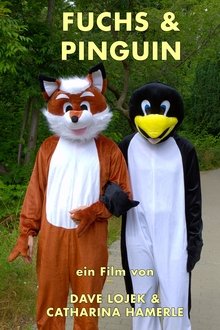
Fox & Penguin (2021)
How do German couples communicate in private? What are they arguing about? Is the way to a man’s heart really through his stomach? This docu-fictional hybrid production discusses such questions with the help of authentic interview snippets that were edited under the staged plot. We get an insight into the life of an animal couple, who experience typical everyday situations on behalf of us humans. At first, our fox is emotionally contained, while the penguin lady may get wild as hell. With a wink, the filmmakers hold up a mirror to the audience in the cinema.